
Tips to completely remove food odors and unpleasant odors in the kitchen and cooking area

English Rewritten & Expanded Version (+20% content)
Keeping your kitchen fresh, clean, and odor-free is essential for creating a pleasant cooking environment. Smoke, grease, and unpleasant smells can easily accumulate during meal preparation, making many home cooks feel uncomfortable every time they step into the kitchen. Fortunately, there are several simple and effective methods you can use to refresh the space and maintain a hygienic atmosphere. Here are some helpful tips you can try at home.
1. Use Vinegar to Eliminate Odors
Vinegar is a familiar and versatile ingredient in every household kitchen, and it has excellent deodorizing properties. To remove unpleasant odors, boil a mixture of water and vinegar in a small pot and let the steam spread throughout the room. The acidic vapor helps neutralize lingering smells from cooking, smoke, or grease, leaving your kitchen fresher and more comfortable.
For stubborn odors, you can also place a bowl of vinegar in the corner of the kitchen overnight to absorb smells naturally.
2. Fresh Ginger for Surface Cleaning
Fresh ginger is not only a flavorful cooking ingredient but also a powerful natural deodorizer. Gently crush a piece of ginger and rub it across surfaces such as knives, cutting boards, cabinet doors, or countertops. Afterward, rinse the surfaces with soap and water. This simple method effectively removes odors and grime, keeping your utensils and kitchen area clean and pleasantly scented.
Ginger also has mild antibacterial properties, which can help limit the growth of harmful microorganisms on frequently used surfaces.
3. Use Aromatic Herbs and Plants
Placing aromatic herbs or small indoor plants in the kitchen is an easy way to purify the air. Plants such as lemongrass, mint, thyme, and rosemary naturally emit refreshing scents that help mask unpleasant odors. Additionally, these plants absorb carbon dioxide and certain airborne particles through photosynthesis, contributing to a more breathable and relaxing kitchen environment.
You can keep them in small pots near windows or shelves—they not only improve the air but also add a touch of greenery and decoration to your home.
4. Turn On the Ventilation Fan
If your kitchen has a ventilation fan or a range hood, make sure to turn it on whenever you cook. These devices help remove smoke, steam, and food smells before they spread throughout the house. Good ventilation keeps the air fresh and reduces moisture buildup, which can lead to mold growth.
If your kitchen does not already have a ventilation system, consider installing a small fan. It helps circulate air, cools down the cooking area, and pushes strong odors outside more quickly.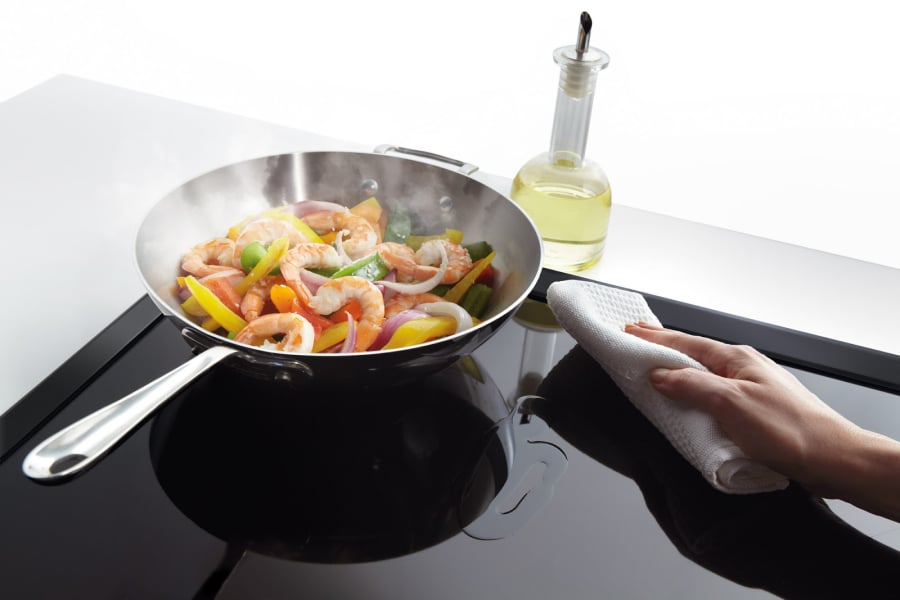
5. Clean Surfaces, Appliances, and Trash Bins Regularly
Frequent cleaning is essential to prevent bacteria and odors from accumulating. Wipe down cooking appliances, countertops, sinks, and stovetops after each use. Empty your trash bin daily—food scraps left overnight can quickly generate unpleasant smells.
By maintaining cleanliness, your kitchen stays hygienic, organized, and visually appealing. A tidy kitchen also makes cooking more enjoyable and encourages healthier food preparation habits.
6. Clean the Sink Drain
Another common source of bad smells is the kitchen sink drain. Food particles, grease, and leftover waste can accumulate inside the pipe, causing clogs and foul odors. To clean it, pour a handful of salt or baking soda into the drain, then flush it with a kettle of boiling water. This helps dissolve residue, deodorize the drain, and improve water flow.
For even better results, you can repeat this method once a week to keep your drainage system fresh and free from buildup.
News in the same category


4 ways to boil chicken without water

Rice water is like gold in the house if you know how to use it for these things

I Just Discovered the Benefits of Hanging a Bottle Cap on a Keychain

4 Dangerous Mistakes When Using an Air Fryer: Risks of Food Poisoning, Cancer, and Fires

Lady places cup of vinegar into microwave. Here’s the genius reason why
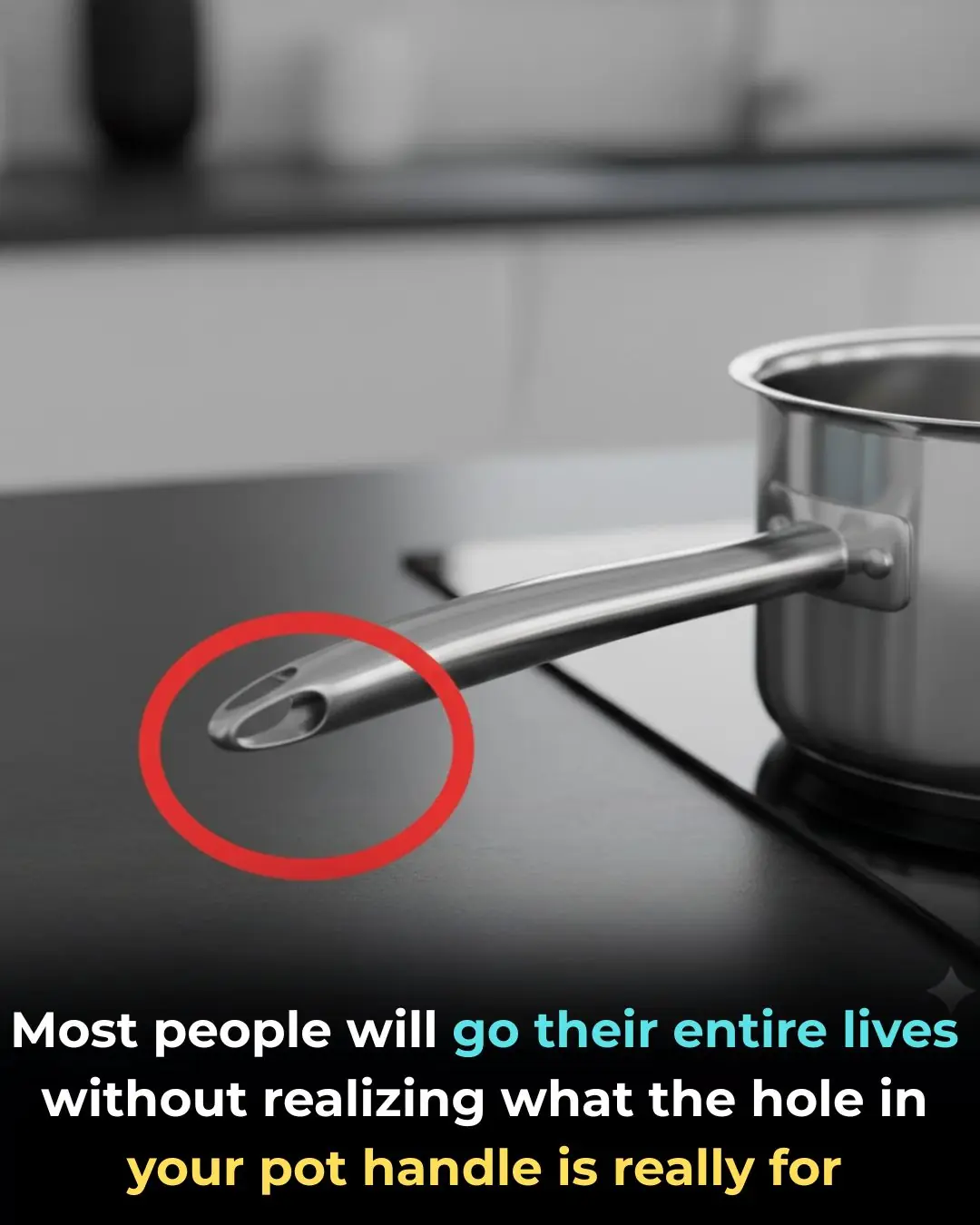
I had no idea this was a thing

6 ways to use wind oil to help repel mosquitoes extremely well

10 odd home fixes you’ll wish you learned years ago

12 weird but genius ways to unclog things naturally

Put borax on wax paper and slide it under fridge. Here's why
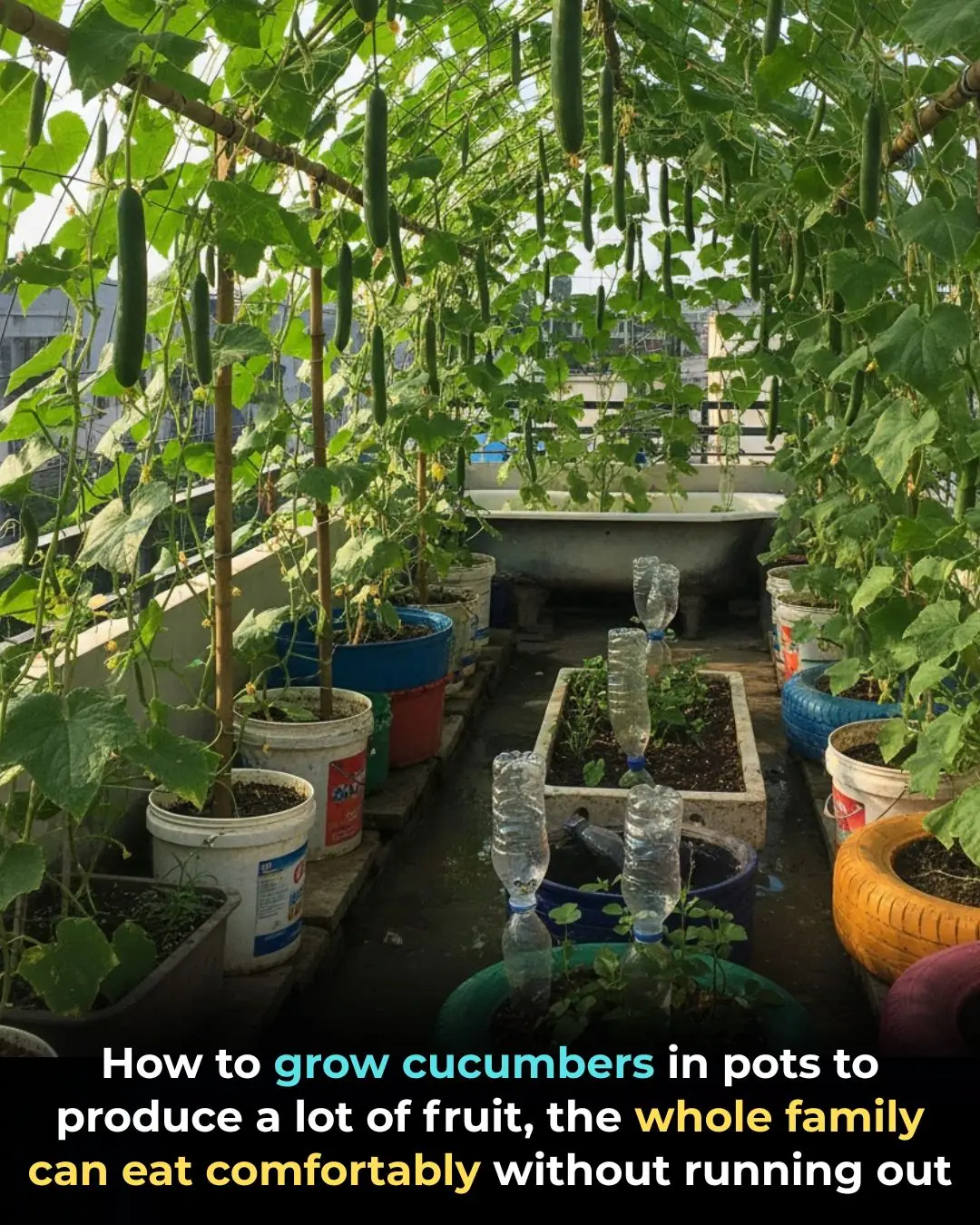
How to Grow Cucumbers in Pots for Heavy Harvests All Season Long

How to make steamed pears with rock sugar is both delicious and nutritious
Let’s take a look at some tips to help keep your kitchen space clean and free of unpleasant odors.

Drinking Roasted Black Bean and Ginger Tea for 7 Days Brings 3 Major Health Benefits

Never Clean Your Light Switches with Water — Here’s a Safe Trick to Make Them Look Brand New

Do not use a sharpening stone on dull scissors. Apply the following method to make the scissors as sharp as new ones bought from the store: Simple but effective

Don't rush to throw away expired or leftover beer. Use it for these 8 things and everyone will praise it

Simple Tips to Fade Freckles for a More Even and Radiant Complexion
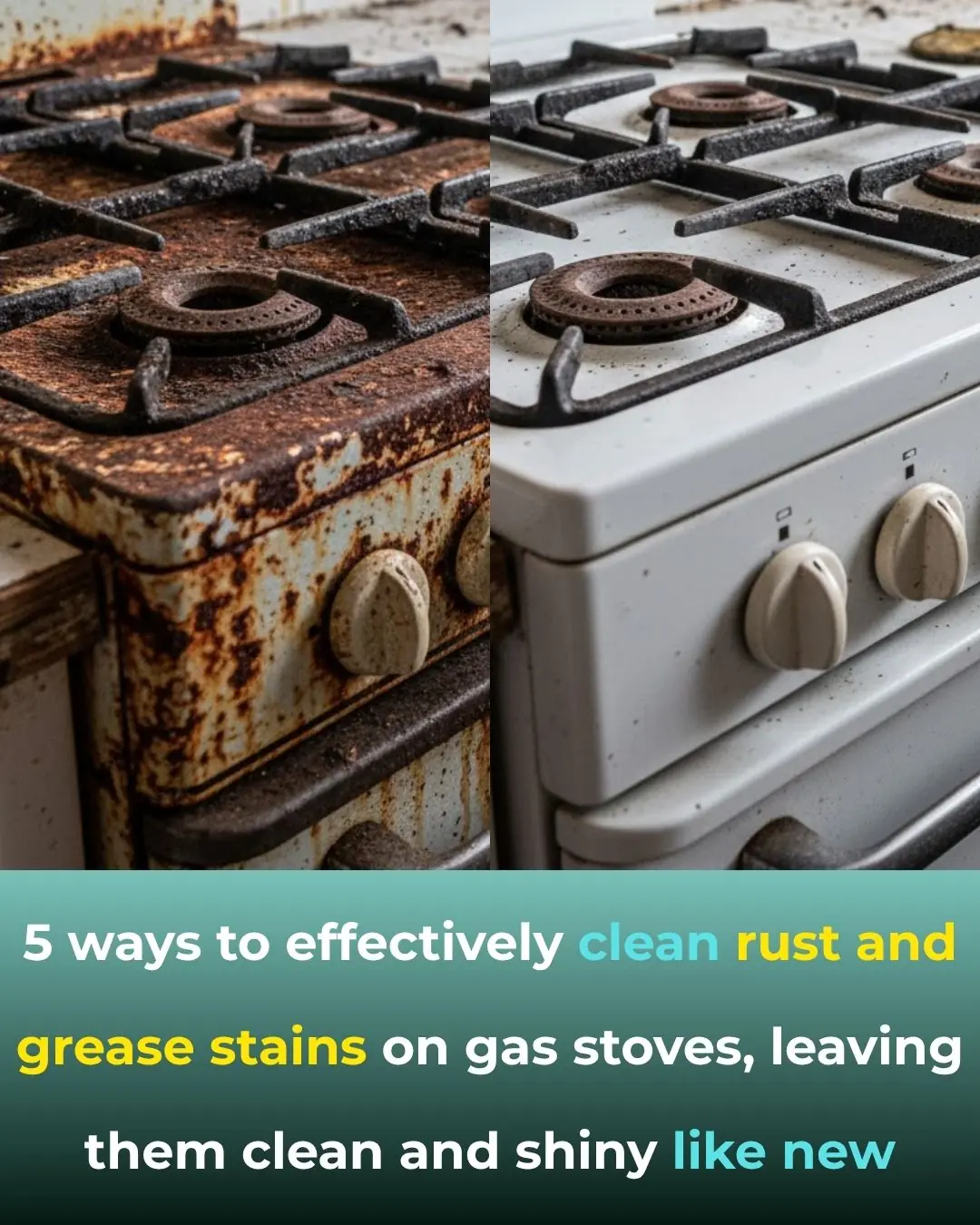
5 Effective Ways to Clean Rust, Grease, and Stubborn Stains from Your Gas Stove—Making It Shine Like New
News Post
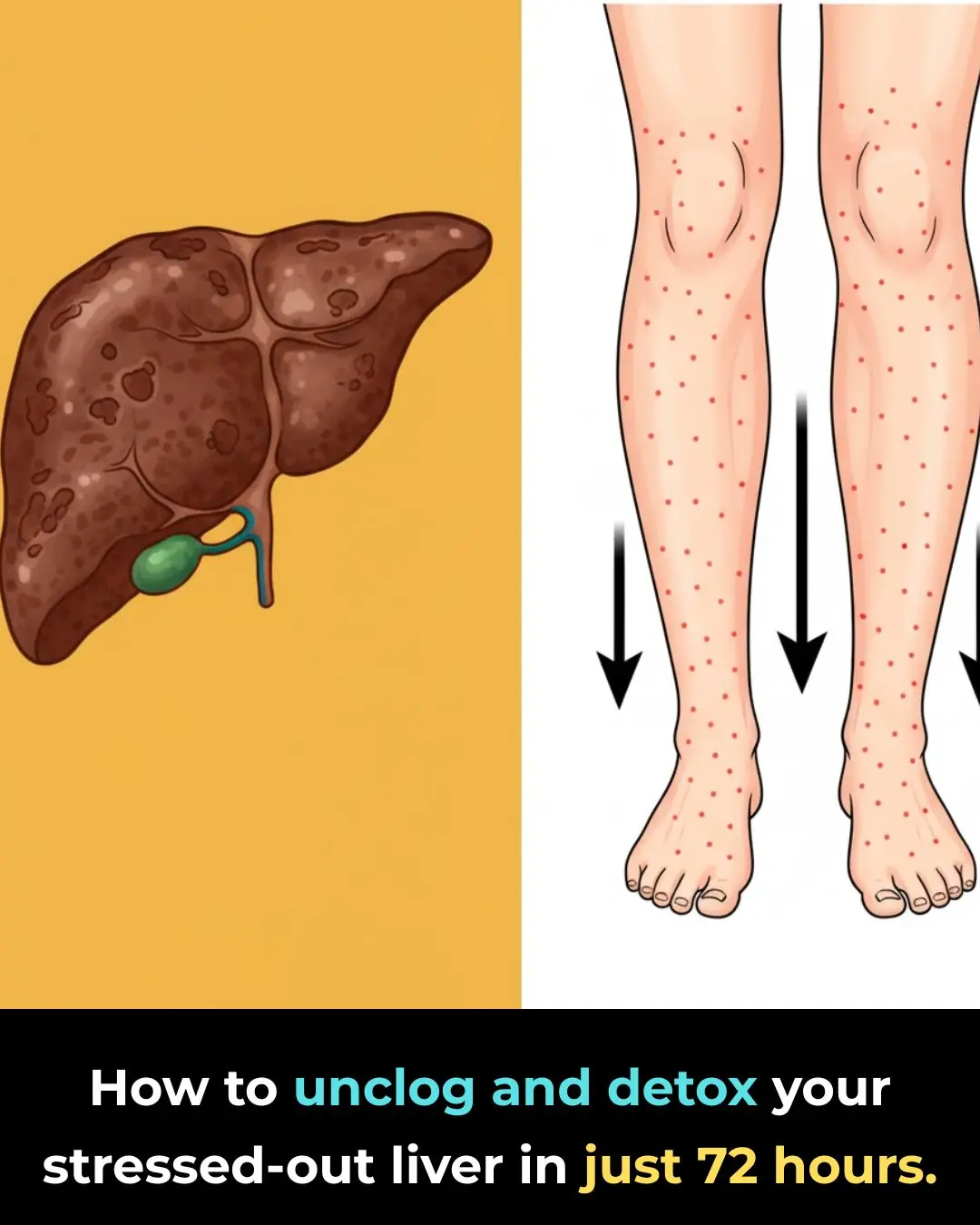
How To Unclog And Detox Your Stressed-Out Liver In Just 72 Hours

Why should you drop a clove of garlic into the toilet at night?

4 ways to boil chicken without water

5 Best Collagen Toners For Wrinkle Free Glowing Skin

Rice water is like gold in the house if you know how to use it for these things

7 Days Indian Glass Skin Challenge

I Just Discovered the Benefits of Hanging a Bottle Cap on a Keychain

4 Dangerous Mistakes When Using an Air Fryer: Risks of Food Poisoning, Cancer, and Fires

Coffee Baby Oil Vitamin E Formula: Collagen Cream For Wrinkle Free Glowing Skin

Lady places cup of vinegar into microwave. Here’s the genius reason why

I had no idea this was a thing

6 ways to use wind oil to help repel mosquitoes extremely well

10 odd home fixes you’ll wish you learned years ago

12 weird but genius ways to unclog things naturally

Put borax on wax paper and slide it under fridge. Here's why

How to Grow Cucumbers in Pots for Heavy Harvests All Season Long

How to make steamed pears with rock sugar is both delicious and nutritious
Let’s take a look at some tips to help keep your kitchen space clean and free of unpleasant odors.

Drinking Roasted Black Bean and Ginger Tea for 7 Days Brings 3 Major Health Benefits
